We fully agree with the Prime Minister when he said that the Constitution has served us well but will need to be further amended to reflect the hopes and aspirations of Saint Lucians, and to respond to the need for the acceptance and celebration of our Caribbean identity.
But how soon will he and his Cabinet engage the citizens in conversations on, and advance work to undertake the constitutional reforms he speaks about is another story altogether.
History has shown that when the Government of Saint Lucia talks about constitutional changes, we the citizens, based on past experience, must not anticipate swift action to follow such statements of intent.
Saint Lucia’s Constitution has been reviewed already. By a unanimous resolution dated 17th February, 2004, Saint Lucia’s House of Assembly authorised the establishment of a Constitutional Reform Commission to examine Saint Lucia’s Constitution and to report in writing, the Commission’s opinions and recommendations for possible reform of that same Constitution.
The Resolution stated that the Commission was required, through broad-based consultations with Saint Lucians both at home and abroad, to “review and reform the Constitution of Saint Lucia in order to encourage effective governance, to ensure that the institutions of State remain strong and responsive and that the rights and freedoms guaranteed to all persons are respected.” It noted further that the major objectives of the exercise were principally to:
“(a) promote a meaningful expansion and widening of democratic participation by citizens in Government;
(b) address possible weaknesses in the constitutional framework which political practice had highlighted over the years;
(c) re-fashion the Constitution so that it better accorded with our changing social and political circumstances; and
(d) promote better governance and greater equity in the constitutional framework generally.”
In the conduct of its affairs, the Commission was to be guided by a set of Terms of Reference specified in the Resolution, which among other things, mandated the Commission to seek ways to;
(a) strengthen democratic institutions;
(b) encourage a wider and deeper participation by citizens in the processes of Government;
(c) strengthen accountability of public institutions; and (d) strengthen the fundamental and basic rights of citizens of Saint Lucia.
All this took place 19 years ago. Clearly, if the Government of Saint Lucia, and in particular this administration, was serious about reforms to the Constitution that would have taken place a long time ago.
The administration was the one which piloted the resolution in the House of Assembly in 2004, to authorise the establishment of the Constitutional Reform Commission. Nineteen years later the same administration is still talking about the need to make our Constitution truly reflective of the ideals and aspirations of our people.
Prime Minister Pierre, in his Budget Statement, said that “letters have been sent to potential members to serve on a committee to review Parliament’s consideration of the recommendations of the Constitutional Reform Commission Report.”
In other words, Pierre will form a committee to review the recommendations of the Constitutional Reform Commission. What could happen is that this review committee could either reject all or most of the recommendations of the Commission or embrace all or most of the recommendations.
It is more than 10 years since the Commission submitted its report. The Labour administration was in power between 2011 – 2016 and, to the best of our knowledge, never once implemented a recommendation from the Commission’s report.
Unless shown otherwise, we believe this administration will be walking gingerly around this constitution reform issue. Neither will the administration side with the popular view, or general agreement that the overwhelming concentration of power in the hands of a small Cabinet, is an unacceptable situation which is crying out for change.
Make no mistake, there is a real hunger for constitutional change among Saint Lucians, a fact the Commission observed more than 10 years ago.
According to the Commission it has discerned restlessness with the status quo, which manifests itself in a pervasive, near universal discontent with politicians and politics alike.
Said the Commission, “At the heart of this cynicism, we detected a widespread belief that our Constitution condemns us to a situation in which, our Governments, once elected, seem beyond our ability to restrain or to influence.”
Will the Pierre administration, or any administration for that matter, willfully reduce the power it has? And which one will put in place legislation or a mechanism that will recall ineffective or dishonest parliamentarians? All of these are recommendations by the Commission.
Clearly, our citizens are justified in taking the Prime Minister’s promise to now look at constitutional reforms with the hope of implementing some of those reforms with a grain (or maybe more) of salt. It is politicians who have kept the reforms from taking place, because, as noted by the Commission, the people regard Government as too powerful and not sufficiently accountable to them. This is power governments are not willing to give up so easily.




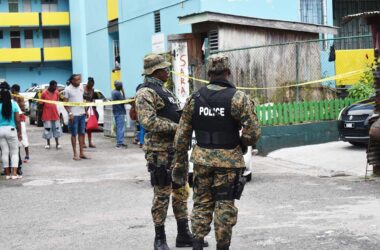

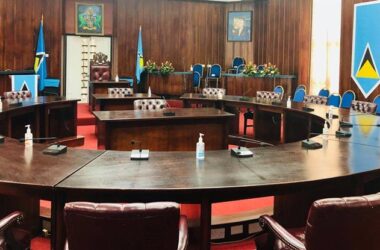


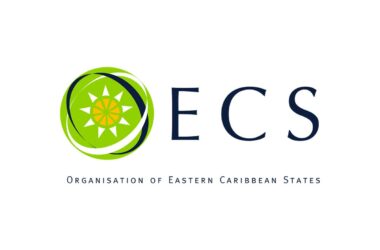
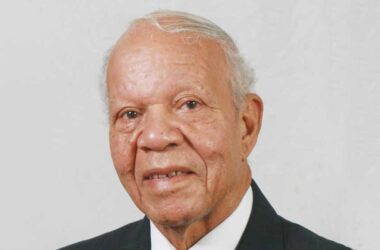



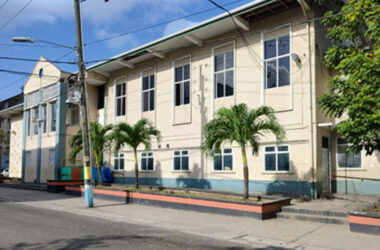
I applaud you for raising an important issue concerning all St. Lucians. Mind you, constitutional reform will never come to St. Lucia unless the people make such demands. The current constitution lacks transparency and accountability; it serves the interest of the politicians and not the populace. It provides elected officials with almost absolute power. Whenever in opposition, the St. Lucia Labor Party (SLP) always gives lip service to constitutional reform but does not have the political will to implement the change. On the contrary, the United Workers Party (UWP) is quite satisfied with the status quo and constitutional change isn’t part of the agenda.
To bring about such change you must continue to agitate, agitate, agitate, and bring awareness to the people of St. Lucia. Our democracy is caricatured as five minutes in a polling booth every five years and nothing else. The people cannot recall a corrupt elected politician until five years regardless of his crime. Is this a democracy? If it is then I would call it a sham democracy.